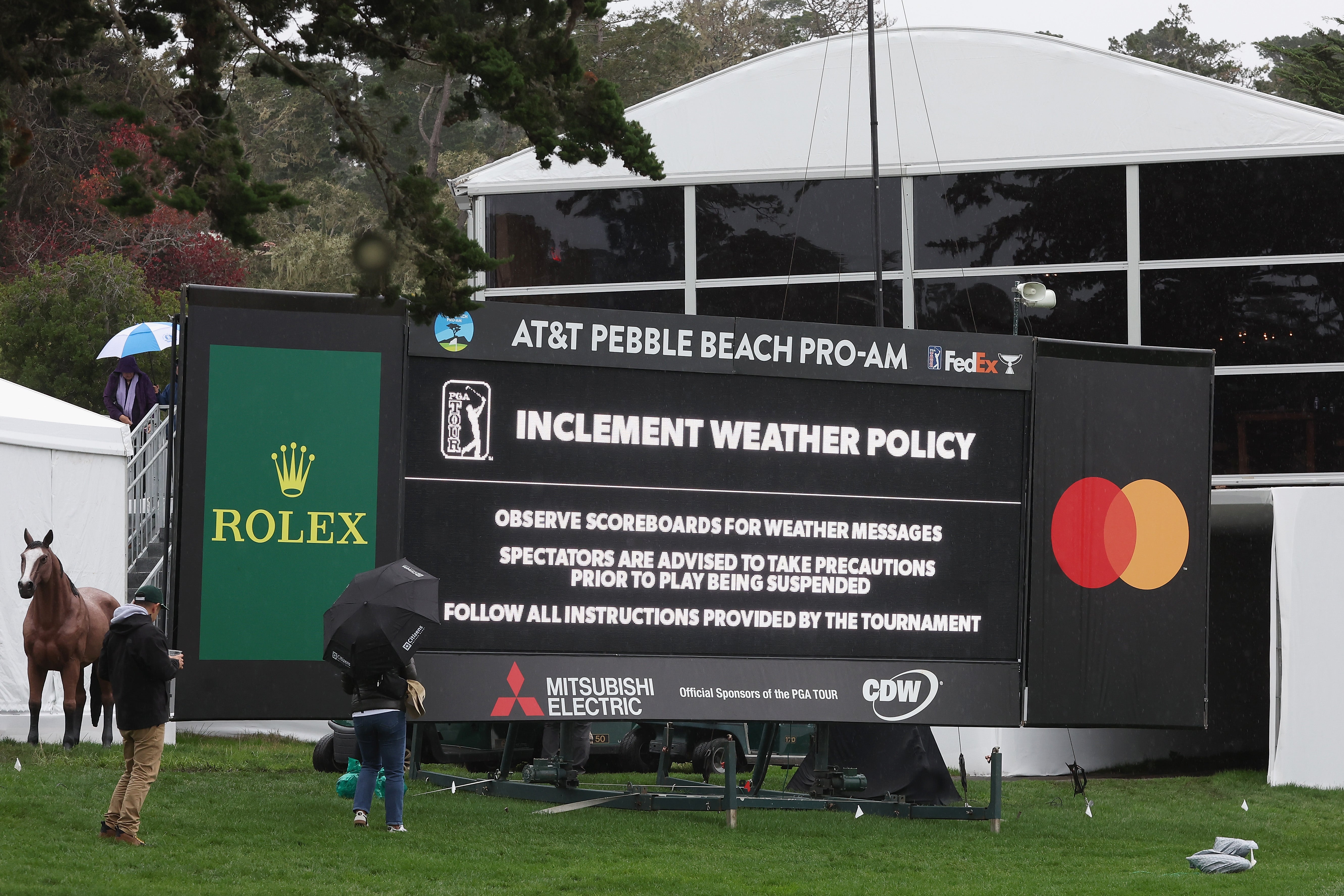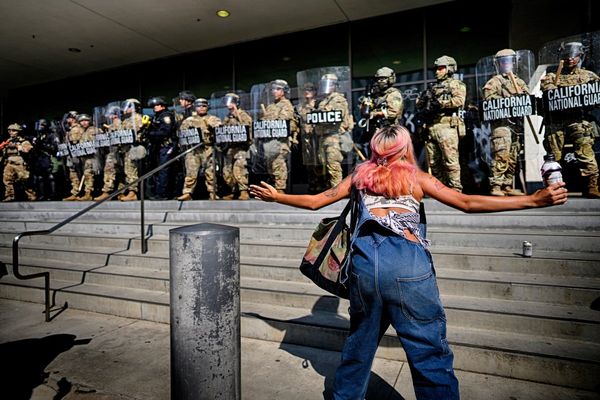
An Iowa gambler thought he had discovered an all-but guaranteed way to win more than $14 million by wagering just over $300, taking advantage of an apparent loophole that online sportsbook DraftKings appeared to have missed.
But, Nicholas Bavas contends in a 39-page breach of contract lawsuit obtained by The Independent, the NASDAQ-listed firm – invoking one of an array of iron-clad platform rules – instead “unilaterally” voided his bets and refunded his money, rather than forking over the life-altering windfall he now insists is rightfully his.
These rules “can and do lead bettors to sometimes place bets erroneously, or without full comprehension” of them, according to Bavas’s complaint, which was removed Friday from state court to Des Moines federal court and has not been previously reported.
Additionally, the complaint goes on, “[u]nforeseen events” that occur during a sporting event often result in changes to the odds that “bettors may not have anticipated when they placed their bets.”
“However,” the complaint argues, “when DraftKings makes an error or accepts a bet it should not have, or when unforeseen events occur that require an unanticipated large pay out [sic]… then it seems different rules apply.”
Attorney Darren Kaplan, who is representing Bavas, told The Independent that DraftKings “didn’t really give an explanation” for canceling his client’s bets. Instead, according to the Kaplan, “they just told him the bet would not be honored.”
“When bettors place bets, they don’t do it purely for entertainment,” Kaplan said, referencing the tremendous profit Bavas stood to make. “They assume that if they win, it’ll be paid out.”
Co-counsel Benjamin Lynch emphasized that the wager Bavas placed represented a contract between him and DraftKings.
“We believe... that Nick’s allegations are founded by fact and law,” Lynch said. “He placed a valid bet and DraftKings needs to honor it.”
In an email on Tuesday, a member of the DraftKings legal team told The Independent that he did not have permission to speak publicly about the case.

On Thursday, February 1, 2024, the annual AT&T Pebble Beach Pro-Am got underway. The tournament was scheduled to run through February 4, across four rounds, with a champion emerging after 72 holes. This time, however, the weather turned bad on the third day, with forecasters predicting severe storms on the final day, which threatened to cut short the event.
Despite the substantial possibility that the closing round on Sunday would be canceled, DraftKings was still accepting bets on the tourney’s outcome late into the night on Saturday, February 3, according to Bavas’s complaint. So, it says, he consulted the current standings to see who was in the lead and, shortly after 10 p.m., used his mobile phone to plunk down a $100 wager on the final results.
Bavas, 37, opted for a so-called 20-leg parlay, usually an astronomical longshot. Yet, if the tourney were to get canceled, and the results were to stand, he would soon be significantly richer.
A parlay is a single bet that combines individual wagers on multiple outcomes, paying out only if each one hits. The steep odds of getting everything right means, generally, a disproportionately rich haul for a lucky bettor.
Bavas picked golfer Wyndham Clark, who was at the top of the standings, to win the tournament, his complaint says. Bavas then selected another four leading players – Ludvig Aberg, Mark Hubbard, Matthieu Pavon, and Thomas Detry – to place among the top five finishers, five others to place in the top 10, and 10 more to place among the top 20.
If Bavas’s picks held, his $100 bet would earn him a payout of $4,651,571.26, according to the complaint, which says DraftKings took Bavas’s action without question.

At around 11:30 p.m. that same night, Bavas put $50 down on another 20-leg parlay, with each pick identical to the first, his complaint continues. This one would pay out $2,325,785.63, the complaint states. Less than 30 minutes later, the complaint says Bavas placed a third identical bet, wagering $100 for another shot at winning $4,651,571.26.
Finally, at 12:01 a.m. on Sunday, February 4, 2024, Bavas bet another $50 on the same outcome, for a $2,325,785.63 payout.
Bavas also wagered $25 on a slightly different type of parlay, picking who he thought would be the top 20 finishers in the tournament, in no particular order, according to the complaint. If correct, this bet would pay Bavas $250,067.99, the complaint states.
In all, it says, Bavas stood to rake in a total of $14,204,781.77 on a mere $325 outlay.
The closing day of the tournament was beset by “historic rain and wind,” and continually delayed the start of play, according to Bavas’s complaint. At 9:15 that night, the PGA Tour Rules Committee announced it would be cutting the tourney short, and that a makeup round tentatively set for February 5 would not take place, the complaint says.
“Although conditions are forecast to improve through the morning Monday, after consultation with Monterey County emergency authorities, who have implemented a Shelter in Place order until early tomorrow morning for the greater Pebble Beach community, and out of an abundance of caution for the safety of all constituents, there will be no play on Monday,” tournament organizers said in a statement at the time. “Therefore, in accordance with the PGA TOUR Regulations the tournament results will be final through the conclusion of 54 holes.”
As Bavas sees it, this handed him a sure victory.
“The leaderboard of the top 20 golfers at the conclusion of play in the Tournament is not in dispute,” his complaint argues. “All of Bavas’s [b]ets… were therefore winners.”

Yet, DraftKings viewed the situation quite a bit differently, and on February 5, invalidated Bavas’s bets and returned his $325, according to the complaint.
“Our position would be, if they didn’t want to engage in that betting scenario , then they should have closed it for betting,” Lynch told The Independent. “If you’re going to take people’s money, it should be paid.”
Bavas’s complaint maintains that the rules on “futures bets” cited by DraftKings in nullifying his wagers do not apply to parlays, and claims that even if certain individual aspects of his bets could have been legitimately excluded on technical grounds, the parlays themselves should have remained valid and the odds recalculated.
After Bavas raised his objections, DraftKings updated its rules to state, “[I]n the event there is a reduction in scheduled rounds played, bets placed on any market will be void if... the bet(s) are placed after the final shot of the most recently completed round,” according to Lynch, who provided The Independent with before-and-after screenshots of the change.
Last year, Americans bet nearly $150 billion on sports, with almost $50 billion of it being wagered through the DraftKings site. DraftKings has faced numerous lawsuits of late, over, among other things, allegations it exploited users’ addictions in inducing them to gamble more than they could afford to lose.
Last month, the City of Baltimore sued DraftKings, along with rival FanDuel, for what Mayor Brandon Scott called “shady practices” in targeting vulnerable gamblers.
A January 2025 class-action suit filed in New York accused DraftKings of preying upon customers who “developed debilitating gambling addictions as a result of DraftKings’ carefully orchestrated schemes.”
In December, a New Jersey woman sued DraftKings after discovering her estranged husband had gambled away nearly $1 million of the family’s money in the midst of a crippling habit she claimed had been “nurtured” by the company’s “VIP hosts.”
Bavas, according to Kaplan, has faith in the legal system and is “relying on the court to hopefully interpret this [case] in our favor.”
“He believes he’s entitled to what he won.” Kaplan told The Independent. “We’re going to let the court decide who’s right and who’s wrong.”
Bavas is seeking treble damages to be determined by a jury, plus attorneys’ fees and court costs.
Trump’s pardon attorney considers full clemency for Stewart Rhodes and Oath Keepers
Dolly Parton leans on her faith after losing husband of nearly 60 years
One-month-old mauled to death in bed by family dog
What happens now that Trump has pardoned reality stars Todd and Julie Chrisley
Outrage as nursing home ‘evicts’ residents to convert facility into luxury apartments
Fox stars want Scott Pelley arrested, ‘60 Minutes’ canceled over anti-Trump speech







